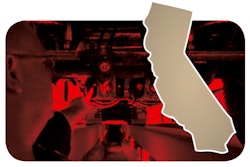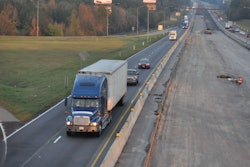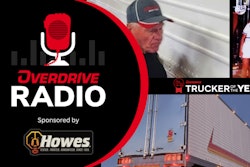
A federal appeals court ruled this week that motor carriers are not exempt from California state law requiring mandatory paid breaks for workers, overturning a ruling made by a lower court that had exempted motor carriers and opening the door for similar challenges, both in California and elsewhere.
Three drivers for Penske Logistics brought the class-action suit against the carrier in 2008, and the Ninth Circuit Court of Appeals’ decision this week could be the final stop, barring a U.S. Supreme Court decision to hear the case.
California law requires employers to give employees a paid 30-minute meal break for every five hours on the clock and paid 10 minute breaks for every four hours on the clock.
Plaintiffs Mickey Lee Dilts, Ray Rios and Donny Dushaj claimed Penske failed to ensure drivers could take their breaks and created an “environment that discourages employees from taking their meal and rest breaks,” according to court documents.
Penske had argued given the structure of driving jobs, it was exempt under the Federal Aviation Administration Authorization Act of 1994, which it said preempts state law.
The Ninth District’s three-judge panel, however, said that California’s break laws are “not ‘related to’ defendant’s prices, routes or services, and therefore they were not preempted by” FAAAA.

Penske’s Senior VP and General Counsel Michael Duff said the company is “disappointed” by the decision and that it is reviewing its options for proceeding.
“We believe federal district court Judge Sammartino correctly determined that California’s meal and rest break rules as applied to motor carriers were preempted by the FAAAA,” Duff said. “We are still evaluating the decision and considering our options for review going forward.”
Richard Pianka, vice president and deputy general counsel for the American Trucking Associations, said the ruling could set a precedent for similar rules in other states. But he also said the Ninth Circuit “marches to the beat of its own drum” and is historically the most likely to have its decision overturned by the Supreme Court.
And while, “strictly speaking,” the decision regards California law, the ramifications could reach beyond the state line, he says. Very likely, this would include drivers coming into California to work, regardless of where their carrier is based. And challenges could be mounted in other states with similar rest break requirements, Pianka suggests.
“I think we can expect the plaintiff’s bar take this decision as an invitation to see how many lawsuits they can file and figure out what will stick,” he says. “Anybody who’s operating within California or anywhere within the jurisdiction of Ninth Circuit in the West needs to take a look at this, and the industry in general needs to think about these issues.”












